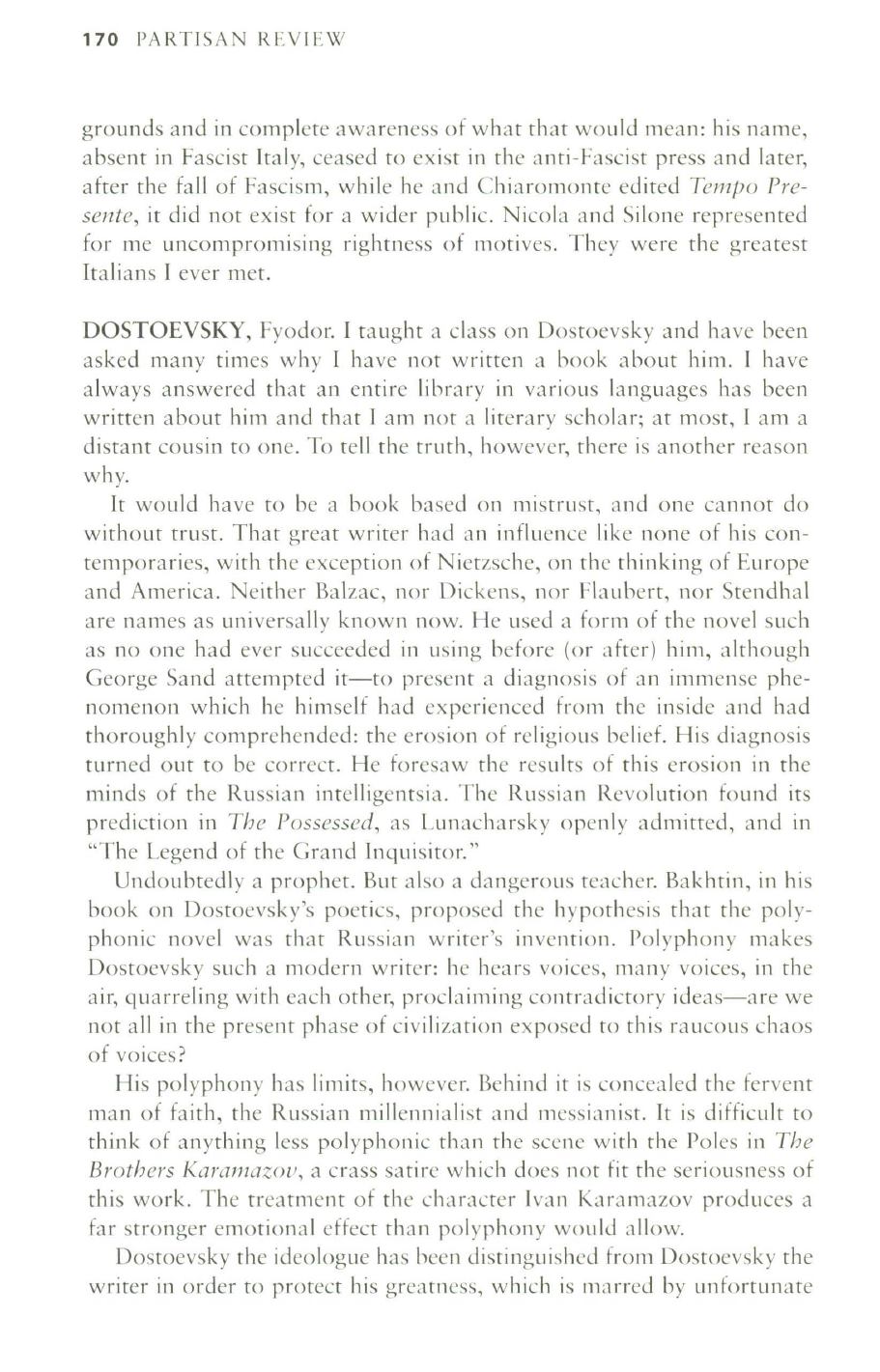
170
PARTISAN REVIEW
grounds and in complete awareness of what that would mean: his name,
absent in Fascist Italy, ceased to exist in the anti-fascist press and later,
after the fall of Fascism, while he and Chiaromonte edited
Tem/Jo Pre–
sente,
it did not exist for a wider public. Nicola and Silone represented
for me uncompromising rightness of motives. They were the greatest
Italians I ever met.
DOSTOEVSKY,
fyodor. I taught a class on Dostoevsky and have been
asked many times why I have not written a book about him. I have
always answered that an entire library in various languages has been
written about him and that I am not a literary scholar; at most, I am a
distant cousin to one. To tell the truth, however, there is another reason
why.
It
would have to be a book based on mistrust, and one cannot do
without trust. That great writer had an influence like none of his con–
temporaries, with the exception of Nietzsche, on the thinking of Europe
and America. Neither Balzac, nor Dickens, nor flaubert, nor Stendhal
are names as universally known now. He used a form of the novel such
as no one had ever succeeded in using before (or after) him, although
George Sand attempted it-to present a diagnosis of an immense phe–
nomenon which he himself had experienced from the inside and had
thoroughly comprehended: the erosion of religious belief. His diagnosis
turned out
to
be correct. He foresaw the results of this erosion in the
minds of the Russian intelligentsia. The Russian Revolution found its
prediction in
The Possessed,
as Lunacharsky openly admitted, and in
"The Legend of the Grand Inquisitor."
Undoubtedly a prophet. But also a dangerous teacher. Bakhtin, in his
book on Dostoevsky's poetics, proposed the hypothesis that the poly–
phonic novel was that Russian writer's invention. Polyphony makes
Dostoevsky such a modern writer: he hears voices, many voices, in the
air, quarreling with each other, proclaiming contradictory ideas-are we
not all in the present phase of civilization exposed to this raucous chaos
of voices?
His polyphony has limits, however. Behind it is concealed the fervent
man of faith, the Russian millennialist and messianist.
It
is difficult
to
think of anything less polyphonic than the scene with the Poles in
The
Brothers Karal1lazou,
a crass satire which does not fit the seriousness of
this work. The treatment of the character Ivan Karamazov produces a
far stronger emotional effect than polyphony would allow.
Dostoevsky the ideologue has been distinguished from Dostoevsky the
writer in order to protect his greatness, which is marred by unfortunate


